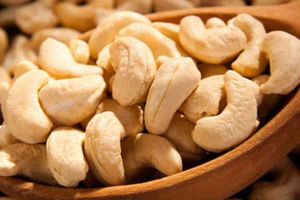PROFILE : Just give them information

Japhet believes in providing smallholder farmers a platform where their voices can be heard. PHOTOI Hansjürg Jäger.
What you need to know:
- “The only thing we can do is to provide a platform that smallholder farmers are heard,” he says in his office in Arusha. And despite the fact that these days many forces are tearing apart agriculture as we know it, for FRI being a platform is the only way to maintain the debates and make sure that everyone’s voice is heard. Or better, that the voices from the many smallholder farmers in Tanzania are heard.
Japhet Emmanuel Sarakikya does not take one or the other side. The 42-year- old Country Director for Farm Radio International (FRI) in Tanzania avoids to take a clear standpoint on hot topics in agriculture.
“The only thing we can do is to provide a platform that smallholder farmers are heard,” he says in his office in Arusha. And despite the fact that these days many forces are tearing apart agriculture as we know it, for FRI being a platform is the only way to maintain the debates and make sure that everyone’s voice is heard. Or better, that the voices from the many smallholder farmers in Tanzania are heard.
And this is remarkable because, everyone who is deep enough into farming and agriculture, knows that things can be pretty difficult. For instance, when it comes to the question whether Tanzanian farmers should grow genetically modified organisms (GMOs) or not. While a large junk of scientists and officials around the world say that GMOs are safe and their use is necessary to adapt to climate change, many civil societies, farmers and consumers do vigorously oppose this view.
They say that seeds shouldn’t be patented by companies and that GMOs are trapping peasants into unsustainable farming practices. As their views are also backed with science, the debate has become more of a religious war between supporters and opponents than a debate over advantages and disadvantages of a new farming technique.
Already in 2014, Japhet was asked by a Canadian journalist, if he thinks GMOs are the way forward for Tanzanian agriculture or not. His answer was simple: “I think, it is a matter of time until the technique is adopted in Tanzania. But it is worth to bring the different voices together. What we can do is provide a platform that the different views of our smallholder farmers are heard.”
He does that with a cherish smile and knowing, that this way perfectly fits to FRI and its policies. FRI provides service packages to local radio stations across nine countries in sub-saharan Africa.
These service packages include information about new farming techniques or suggests radio programmes about particular topics in agriculture.
For example how to raise chicken in a proper way. It is FRI together with scientists, technicians and other stakeholders, who put together the relevant information and provide contacts. The information packages are then used by local radio stations, which translate the information into a radio programme fit for the farmers within their audience.
In addition, FRI offers technical solutions to the radio stations, so they not only transmit information but also have farmers’ views included into the radio programmes. The combination of both is what ultimately helps to avoid biases and a one-sided handling of any content related to agriculture.
Before joining Farmradio, Japhet was working with another Canadian organisation, Canadian Physicist for Aid and Relief (CPAR), which is an NGO focusing on food security and nutrition, water, sanitation and hygiene, primary health care and livelihoods. It was rather a natural choice for Japhet, as his first degree was in Natural Ressource Management.
“And then, while working on food security related questions, I got very much interested in agriculture. And I realised, that there are a lot of connections between public health, environment and agriculture,” Japhet explains.
After ten years working with CPAR, he decided to go on a second degree at the Kilimanjaro Christian Medical College in Moshi. He studied public health to bolden the lines he discovered while working with CPAR. Finally, he got the chance to work with FRI as Country Director for Tanzania, where he now can further deepen his knowledge and understanding of the different connections between food, agriculture, health and environment.
Japhet knows that the work, FRI is doing does change lives. “By working here, I know that providing certain information helps farmers in rural areas to improve their lives. Thus, I feel like‚ wow! I am contributing to their improvement and changing lives out there. And this is, what keeps me running,” says the father of four.
Growing up at the foot of Mount Meru, he experienced what it means not to have adequate information about farming. His parents were growing coffee, vegetables, bananas and kept some chicken and cows.
“I remember exactly my parents struggling for information and inputs, but they couldn’t get it.” And like his parents there were millions of farmers out there, either lacking information or inputs, mostly both, to improve their way of farming.
The difference between having no information and having little information has an impact on rural farmers’ lives. “Information is powerful. For example climate change. We have to talk about how we can adapt, because life will go on,”Japhet says.
“To be able to cope with the changes happening out there, we need information.” Information about proper cropping, the ideal use of irrigation systems and about drought-tolerant seeds. As soon as there is information and the respective products available, Japhet and his team do prepare contents. To do so, they work with scientists, government officials and farmers. “It is not about promoting one particular product, it is rather to provide an overview of different solutions for a pressing issue,” he says.
Thus, instead of promoting one particular way, FRI strives with its programmes and information service packages to empower farmers to decide on their own. “Farmers who listen to our programmes throughout the season are five time as likely to adopt the techniques promoted,” Japhet said in 2014.
Coming back to the GMOs, this means literally, that FRI neither actively blocks nor promotes the use of GMOs in Tanzanian agriculture. Instead, they provide information about the pro’s and con’s.
“In the end, farmers decide what fits best to their conditions and needs.” And even if they would not like the radio-programme, they would just switch the channel.
Luckily, the latter is not the case and over the last 37 years, FRI has been growing continuously. It seems that the strategy of not taking any side does pay off.
Email: [email protected]




